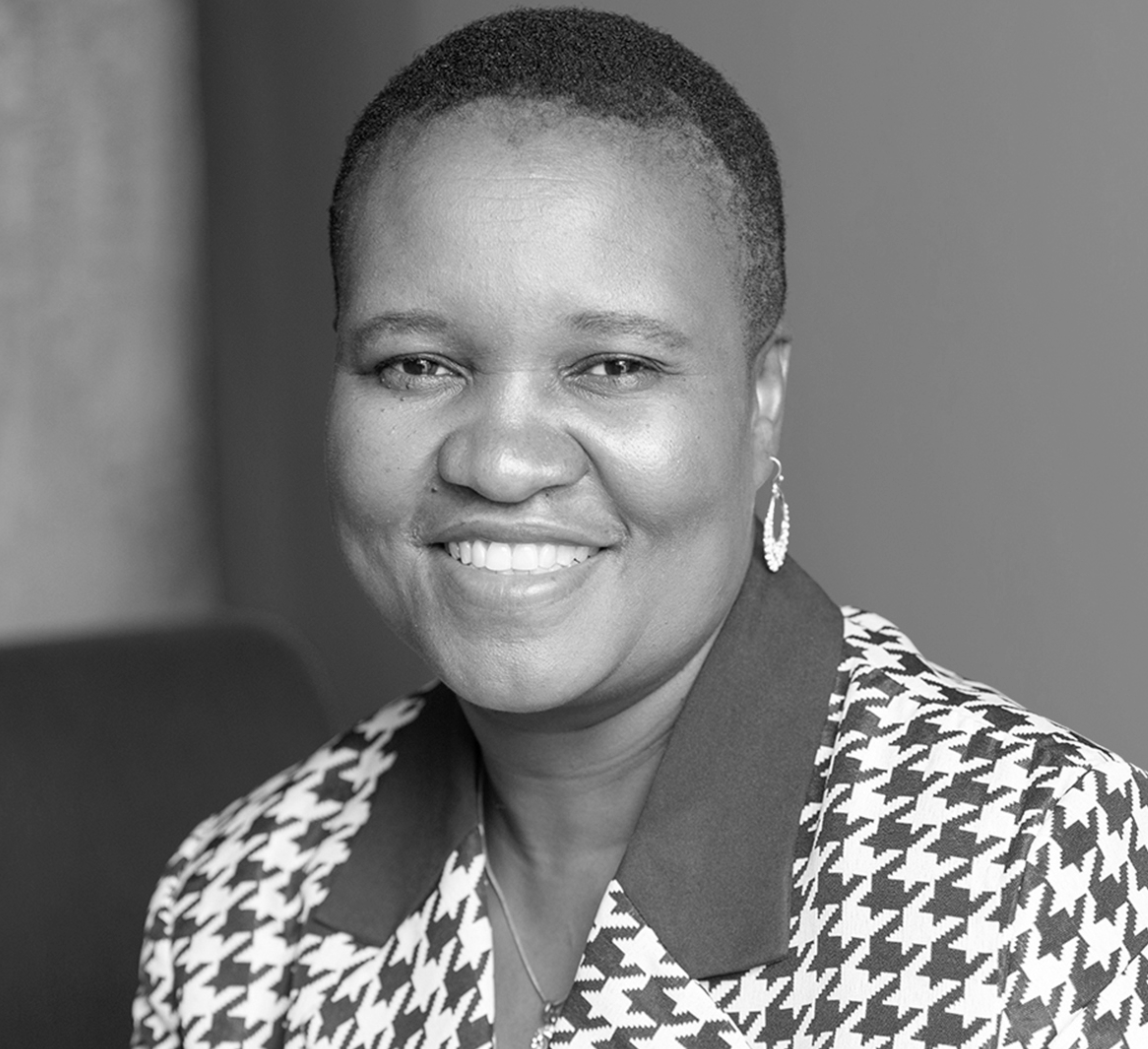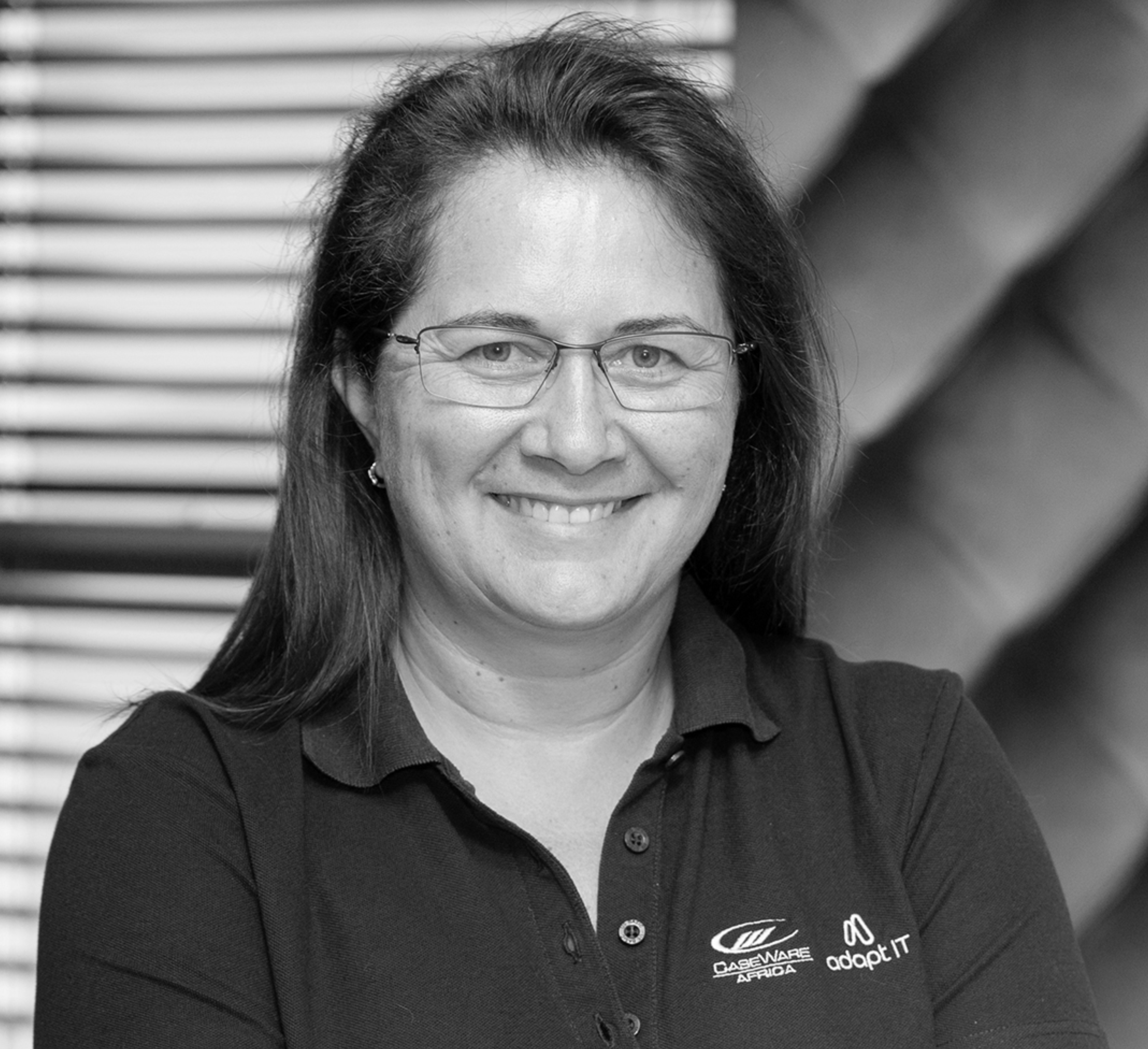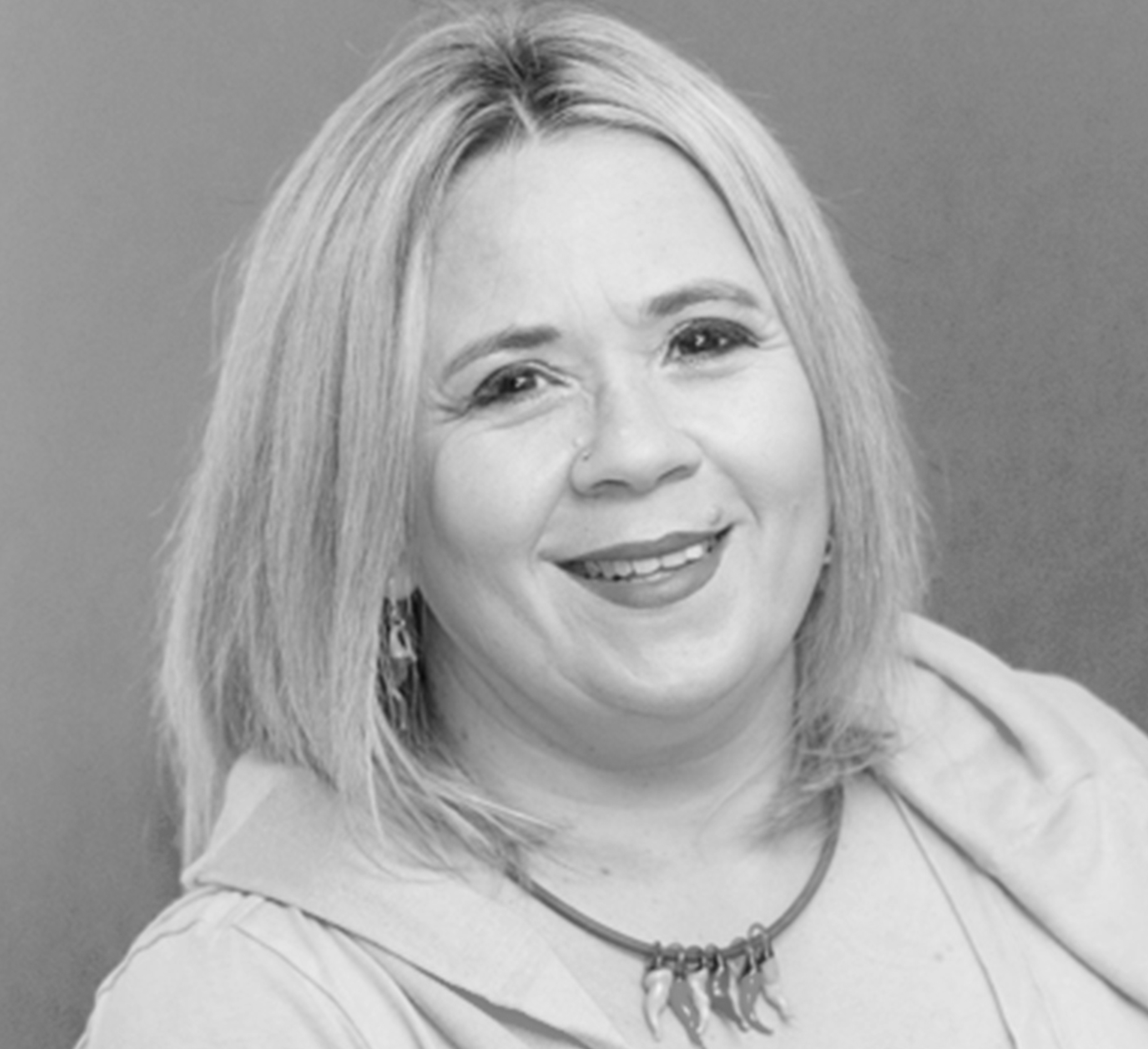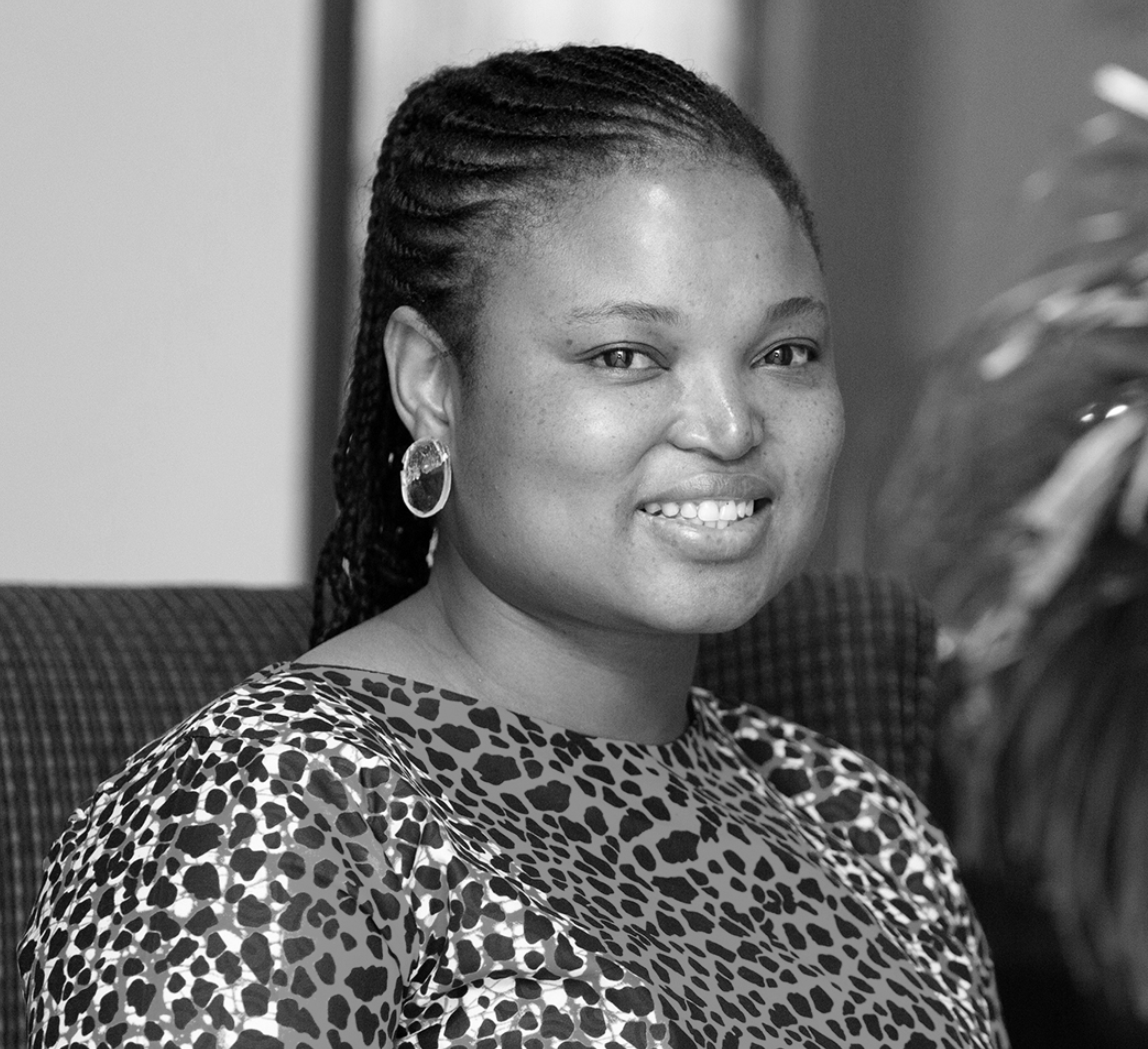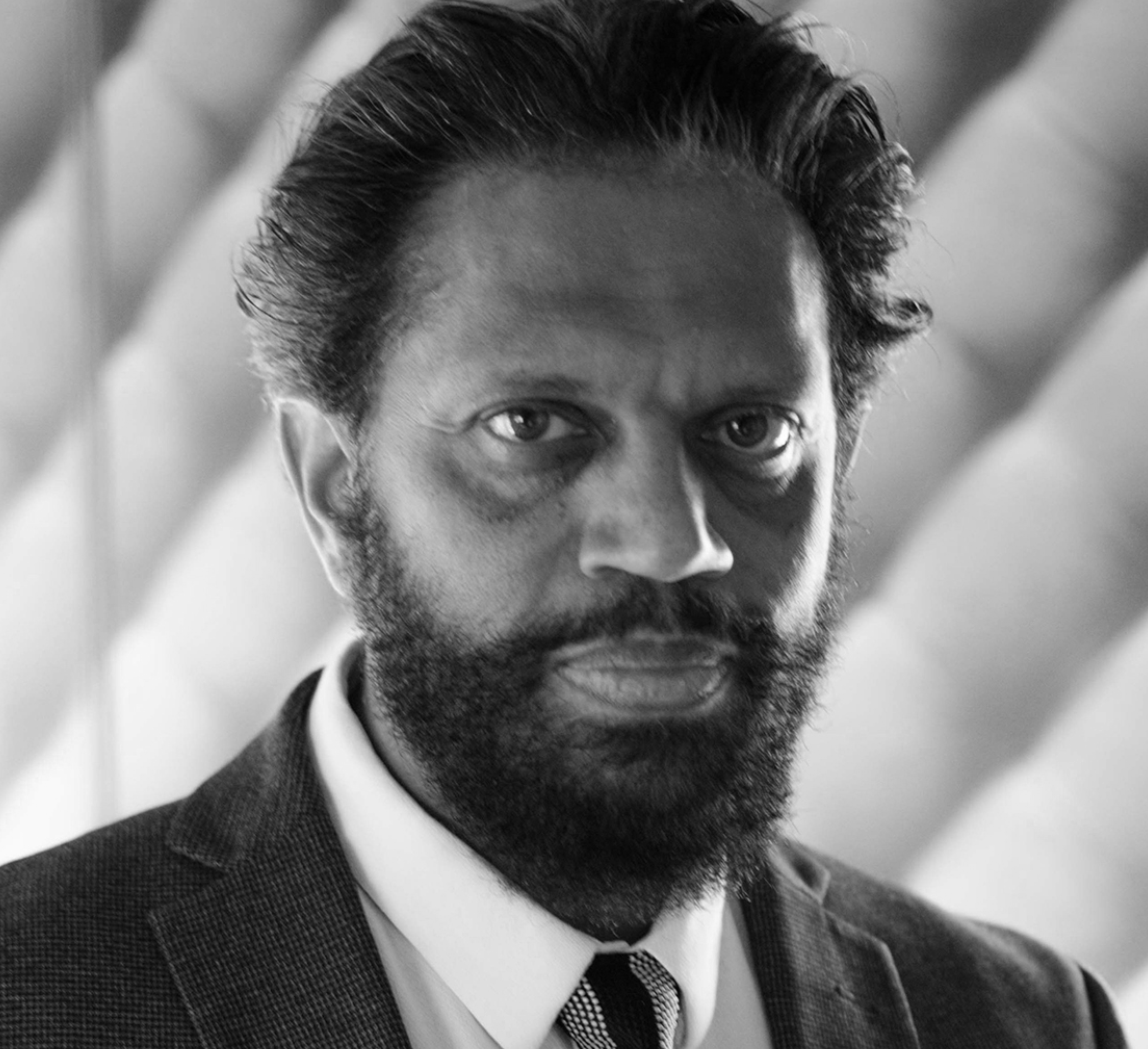43: Irene Mathatho
Chief Financial Officer – The Companies Tribunal
Engaged as the first CFO of The Companies Tribunal, Irene Mathatho has ensured that the state-run entity has achieved clean audits for the past three years.

Obtain a Certified Financial Officer CFO (SA) designation
This really is the Formula 1 of accounting designations. The CFO designation is internationally recognised and validates the years of toil and ingenuity it takes to reach to the top of your field. You’ll be part of an exclusive and powerful network of CFOs and finance executives.
As a CFO (SA) you get to share in a wide range of benefits. You gain status as an international finance executive and achieve your listing in the official CFO Directory. You will receive exclusive invitations to the CFO Talks events and get a chance to connect with knowledgeable thought leaders within the CFO community, covering all issues affecting the CFO including business, social, technical and global issues.
For more information go to: https://dev06.saiba.org.za/cfo-sa-designation/
CIARAN RYAN: This is CFO Talks and I’m very happy today to be joined by Irene Mathatho, who is the chief financial officer for The Companies Tribunal. The Companies Tribunal was set up under the Companies Act in South Africa and it performs a number of functions, such as providing voluntary dispute resolution through conciliation, mediation and arbitration, and it falls under the Department of Trade and Industry. I notice, Irene, that the tribunal has received clean audits for four years in a row, which is quite an achievement. Prior to that I think there were unqualified audits for three years. So since you came in you have been cracking the whip…
IRENE MATHATHO: [Laughing]
CIARAN RYAN: So welcome to CFO Talks. Maybe let’s kickoff and ask how you managed to get the audits clean for four years in a row? As I said, that is a hell of an achievement and we know that many state-run bodies are falling short of that standard, so how did you manage that?
IRENE MATHATHO: Let me just say, thank you for hosting me today. Well, for me, getting a clean audit, you just have to do your job. Whatever you have been appointed to do, that is exactly what I am doing. But I do know that a lot of public sector entities struggle. For me, what I have done, I am the first CFO of The Companies Tribunal and I went there purely with an aim to make sure that I’m going to manage the institution to achieve a clean audit. It is achievable, like I said, it’s just to get the work done, ensure that there are processes in place so that there are proper internal controls, the staff know what it is that they need to deliver on and that’s what I have been driving to make sure that we put the internal controls in place. We are in reconciliation, we are in finance, we reconcile the accounts, we don’t have any outstanding non-reconciliation items. So, for me purely, it’s just ensuring that we do have processes in place, so when staff come in in the morning they know, so you cannot go a day without doing something because then what’s the reason for coming to work. The other thing, within the public sector environment we do have a lot of compliance requirements and I take it as my responsibility to keep abreast, ensure that we don’t fall behind because those are some of the things that will lead to qualified audits. But once you comply, once your financial accounts are in order, there’s no reason not to achieve a clean audit and that has been purely the main drivers for ensuring that we achieve the clean audit.
CIARAN RYAN: Let’s step back a minute and find out a little bit about you and where you grew up and went to school and how you ended up in the position you are in now as chief financial officer for The Companies Tribunal.
IRENE MATHATHO: Well, I am from Limpopo, I’m from a village called [indistinct], I went to primary school and high school there…
CIARAN RYAN: Is it a small town?
IRENE MATHATHO: Yes, the closest town is Mokopane, so it’s a very small town. I can’t even say that I knew what a CFO was when I was growing up. For me, it was just a natural love of numbers that brought me here.
CIARAN RYAN: Did you have that from an early age?
IRENE MATHATHO: Yes, hence, I am saying it’s a natural love because I cannot even say that there was somebody that I was looking up to who was a CFO, I didn’t have those kinds of luxuries. So it was just a matter of whatever I excelled in numbers at school and this brought me to pursue this. I had to find it myself. I remember back then there was no technology, if you want to enquire about your career, you’ll write a letter and I wrote, it was the Department of Manpower then. But right now, even if I recall, I just don’t know what drove me to even write that letter, but I wrote because I just wanted to know. I would see people in the banks and I didn’t even know what type of finance they were doing but those were the things that were just exciting for me, and yes, I enrolled, I did my BCom degree at the University of Limpopo and that’s how my career started. From there I did my articles, I started with KMMT but it was taken over by KPMG. That’s where I gained experience because even when I did the degree, it was still a matter of trial and error, what is it that I am going to be. But having started by serving articles that assisted a lot because we were doing accounting, compliance, auditing and I just realised that I am in love with accounting, hence, I followed the route of CFO.
A seasoned CFO
CIARAN RYAN: So you audited for a while as well?
IRENE MATHATHO: Yes because in articles most of the tasks that we did were in auditing. But it was only during articles, after articles my first role in finance was as an assistant director of finance, and that’s how I got it. I went up the ladder, in private I worked in what’s currently known as Ubank, I worked there as a credit accountant. I have got experience in both the private and public sector, within the public sector I spent some years at National Treasury, that’s where I learnt a lot about the public sector. I have been CFO before, this is the third entity where I have been a CFO.
CIARAN RYAN: Where were you previously?
IRENE MATHATHO: Previously I was at the National Metrology Institute of South Africa…
CIARAN RYAN: Goodness, what do they do, Metrology, what is that, is that measurements?
IRENE MATHATHO: Measurements, yes, that’s their main thing, they make sure that the measurements within the country are in order.
CIARAN RYAN: I guess you do need that, you’ve got to standardise some things.
IRENE MATHATHO: Yes, that’s exactly what they do, they ensure that the measurement complies to the standard.
CIARAN RYAN: So you were CFO there?
IRENE MATHATHO: Yes, I was the executive director of finance and corporate services, it was quite a big portfolio, but even then, I managed to lead the organisation to a clean audit for the first time.
CIARAN RYAN: And prior to that where were you CFO, you said there were three engagements where you were CFO?
IRENE MATHATHO: Prior to that I was at the Municipal Demarcation Board, I didn’t really spend much time there but through the processes I put in place I improved internal controls and the supply chain management process. But I didn’t stay for a while at the Municipal Demarcation Board, so I didn’t get to a point of a clean audit.
CIARAN RYAN: But you made up for that in your subsequent career.
IRENE MATHATHO: [Laughing] Yes.
CIARAN RYAN: So for people who don’t know, give us a quick overview of The Companies Tribunal, what’s its function, how many staff you have there and why is it important to the general economy?
IRENE MATHATHO: We are a tribunal, like you have already said, we are quite a small entity in terms of numbers because currently we have a staff complement of 15 but we have got about nine tribunal members, those are the people who handle the cases.
CIARAN RYAN: These would be legal professionals and judges and so on?
IRENE MATHATHO: Yes, those are legal people who are qualified, some of them are acting-judges in their own profession, they are not really fulltime, per se, they are part-time, appointed by the Minister of Trade and Industry. Yes, I have just mentioned the staff complement and we are an institution under the Department of Trade and Industry. The main function that The Companies Tribunal performs is that we adjudicate cases that are brought before us in terms of the Companies Act and we also resolve disputes in terms of alternative dispute resolution through conciliation, mediation and arbitration. We are alternative to the court, so one doesn’t have to go to the court if you’ve got a dispute within companies, so The Companies Tribunal is there to assist with those disputes.
Trademark and company name disputes
CIARAN RYAN: What kinds of disputes are coming up, what are the most common?
IRENE MATHATHO: The most common one that we are getting is the name dispute.
CIARAN RYAN: Oh, trademark disputes, name disputes, somebody has taken my company name and that sort of thing?
IRENE MATHATHO: Yes, someone has taken my company name. For example, Moneyweb, there might be somebody else operating a company called Moneyweb. So that creates confusion and once you pick up that you can apply to The Companies Tribunal and say there’s confusion here and then, like I have said, our tribunal members who are qualified in this field will assess the merit of the case and a decision will be made.
CIARAN RYAN: Roughly how many cases do you handle in a year?
IRENE MATHATHO: When we started I think we had about 340 cases, it’s difficult to measure the cases each year. For example, in the past financial year we’ve got about 244. So, yes, we are an entity that is trying by all means to make sure that we market the institution because one of the reasons why we are not getting more cases is because it might be that we are not well known but we are trying by all means to go around the country to make sure that our services are known to even the people on the street.
CIARAN RYAN: What about an instance where a supplier has not been paid by a company? I was just listening to a discussion about Donald Trump’s behaviour as a property developer, where evidently he would get suppliers to come in and they would build whatever it was they were building and then he would say, listen, you didn’t put the door handle on straight, so I am only going to pay you 50 cents in the dollar. This is a practice that goes on in construction in this country and the poor supplier doesn’t have the money or the budget to be able to go to a court because he’s got to employ lawyers. Is that something that you would be able to handle, commercial or disputes like that?
IRENE MATHATHO: If it’s more of a contractual dispute, currently we don’t have the mandate for that. Our mandate is specific in terms of the Companies Act. Our mandate is not that broad, we might be able to handle some of the cases, while others we may be able to handle. Some do apply and our tribunal members will assess that and if it’s not within our mandate the response will be given but our mandate is limited in terms of company disputes.
CIARAN RYAN: So commercial disputes are not part of your mandate?
IRENE MATHATHO: No, they are not.
CIARAN RYAN: Okay, so it would be more about name disputes, trademarks and that type of thing.
IRENE MATHATHO: Ja, maybe you are not able to produce your financial statements, you want an extension, you apply to us. You want to deviate from establishing your social and ethics committee, those things that are stipulated in the Companies Act, then you come to us and say I am not able to [do this]. Sometimes there’s a directorship dispute, we also handle that.
CIARAN RYAN: Let’s talk for a minute now about the role of a CFO, there seems to be a feeling that the role of the CFO is changing. For example, are you spending more time managing your team than getting the numbers in order? Where do you spend most of your time, is it people issues, is it numbers, is it regulatory issues?
IRENE MATHATHO: From where I am sitting it cuts across all those three that you have mentioned, managing, regulatory compliance and the numbers, that’s what keeps the CFO busy most of the time. For me, they all carry the same weight, the numbers have to be in order, the numbers have to be accurate. Although you have got a team working on the numbers but as a CFO you are a leader ensuring that you are able to present accurate financial reports. Also, you’ve got to lead the people, you’ve got people reporting to you, you’ve got to manage, provide direction, making sure that they know what needs to be done. On the other hand, you have got regulatory compliance, you are directing the team, you need to make sure that the organisation doesn’t fall behind in terms of compliance. So, for me, it’s a combination of all of them that keeps one busy, especially in a small institution, you just juggle almost everything.
CIARAN RYAN: One of the common themes that comes up because I ask a lot of people that, where do you spend most of your time as a CFO, and it seems to be people. I guess this is part of the dynamic of working in any group or organisation that you are going to have some people who are struggling in their jobs and they need more attention. Anyway, it’s just an interesting observation from CFOs because you imagine that they would be spending a lot of their time looking at the figures and not spending a lot of time on people issues. Okay, so are you involved as well in strategic planning at the tribunal, in guiding its future direction because that’s also something that a CFO in this day and age is expected to do?
IRENE MATHATHO: Yes, I am involved because everything involves finances. Whatever the institution plans we need to make sure that there are funds to support that. So that’s my role in ensuring that whatever plans that the institution plans to achieve, like in government we have a framework that we need to comply with for strategic plans, so whatever we do, one has to make sure that there’s a financial strategy to support the bigger strategy for the organisation. So, yes, I am involved at a very executive level in ensuring that we direct the future of the institution.
Managing finance in a tight economy
CIARAN RYAN: Good. What about the challenges, you’ve been in the finance game now for some time, how would you describe the changes that you’ve experienced, particularly the role of the chief financial officer, how is that evolving?
IRENE MATHATHO: It is evolving, technology is evolving, as accountants we are used to keeping records and, of course, we are trained as auditors. But, yes, things are changing and as a CFO one has to be able to adapt to those changes and always making sure that you surround yourself with…like CFO talks, learn from your peers, what are they doing that you can learn from them and being a CFO also in this current economic condition is also a bit challenging because one is expected to manage funds in a very prudent way, one is expected to deliver more with less and it’s always a challenge because people get tired every time you mention there are no funds, you are expected to make sure that you assist the other divisional managers in ensuring that they achieve what needs to be achieved. So it’s no longer business as usual for CFOs because we really have to manage finances, given the tight economic conditions and that’s one of the most challenging things.
CIARAN RYAN: So at the end of the day it’s all about the accountability.
IRENE MATHATHO: It’s all about accountability, yes.
CIARAN RYAN: Let’s talk about some books that you would recommend.
IRENE MATHATHO: I like books that talk about facts and information, something that’s real, I’m not a novel person…
CIARAN RYAN: Business books or not really?
IRENE MATHATHO: Well, it’s a combination, I read business books, Christian books, it’s a combination but I am not a novel kind of person.
CIARAN RYAN: So what do you do to unwind, outside of work what do you do for fun?
IRENE MATHATHO: Well, I like road trips.
CIARAN RYAN: Where did you last travel to?
IRENE MATHATHO: I travelled to Namibia.
CIARAN RYAN: Did you go up north?
IRENE MATHATHO: All the way from Windhoek to Walvis Bay.
CIARAN RYAN: It’s an amazing country, isn’t it?
IRENE MATHATHO: It’s very amazing.
CIARAN RYAN: Talk about space, when you hit the roads in Namibia and you’ve come from South Africa, there’s nothing, there’s hundreds of kilometers of nothing.
IRENE MATHATHO: Nothing, ja. Also, just spending quality time with family because we tend to get busy and all those things
CIARAN RYAN: Sorry, I must say to people who don’t know Namibia, when I say nothing it’s beautiful, it’s just that there are no towns. I just had to clarify that.
IRENE MATHATHO: [Laughing] Yes, I understand that.
CIARAN RYAN: Because we do have some members in Namibia and they will be very offended if I say there’s nothing there.
IRENE MATHATHO: [Laughing]
CIARAN RYAN: Okay, so road trips, so where is your next trip, where is that going to be?
IRENE MATHATHO: I normally plan around June, I am still exploring African countries, I haven’t been to Zimbabwe but I am still going to research and find out if it’s somewhere I want to go to.
CIARAN RYAN: What about Botswana?
IRENE MATHATHO: Yes, coming from Namibia we went past Botswana.
CIARAN RYAN: Did you go to Okavango?
IRENE MATHATHO: I didn’t go because we didn’t spend much time in Botswana, and we were also tired after driving all that way. But I am still going to plan that.
CIARAN RYAN: Irene, we are going to leave it at that. Thanks so much for coming into the studio, it was fascinating to hear about The Companies Tribunal and your progress in your career as a chief financial officer. Please come again.
IRENE MATHATHO: Thank you very much for having me.
CIARAN RYAN: You are welcome.

